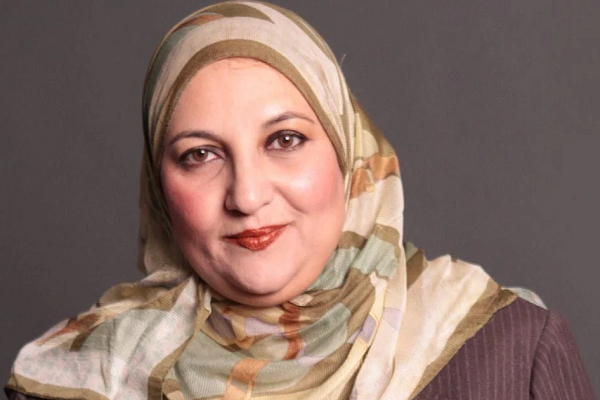Muslim Women’s Success Shattering Negative Stereotypes about Islam: Academic

This is according to Sahar Khamis, an Associate Professor in the Department of Communication at the University of Maryland, College Park, who made the remarks in an interview with IQNA. She is an expert on Arab and Muslim media, and the former Head of the Mass Communication Department in Qatar University.
Khamis is a media commentator and analyst, a public speaker, a radio host, and a former Human Rights Commissioner. She is the co-author of “Islam Dot Com: Contemporary Islamic Discourses in Cyberspace”.
Following is the full text of the interview:
IQNA: In recent years, there have been Muslim women who have achieved great success in various fields. What do you think is the main reason for these successes?
Khamis: Muslim women, like other women from different backgrounds, can prove themselves when they are given the right resources, support, and environment to succeed. Many Muslim women are now having access to higher education opportunities, to employment, and to playing more active and visible roles in the public sphere.
They are setting excellent examples and becoming powerful role models for the coming generations. Most importantly, their successes are shattering many of the negative stereotypes and faulty myths about Islam and Muslims, in general, and Muslim women, in particular.
IQNA: In western societies, there is a kind of negative view towards veiled women. What is the root of this view and negative perceptions towards veiled women?
Khamis: Unfortunately, this is very true, and I think one of the main reasons is lack of awareness about Islam, Muslims, and Muslim women. Human beings are always enemies of whatever they are ignorant about, and the root cause of fear is always ignorance.
The media also plays an important role in this regard, by creating negative images and skewed stereotypes about Muslim women, who are oftentimes portrayed as powerless, weak, marginalized, and silent. Women who wear the hijab, in particular, are more likely to become victims of these media stereotypes and misrepresentations, due to their visible Muslim identity.
IQNA: Some believe that the restrictions imposed on Muslim women in some Islamic societies are more due to the traditions of the societies than the orders of the Islamic Sharia. what is your opinion?
Khamis: I totally agree with this point. I always emphasize that we should distinguish between religion and tradition, and between religious teachings and culture.
Islam, as a religion, gave Muslim women a lot of rights which were, and still are, progressive in so many ways, such as the right to divorce themselves, to own their own property, to choose their spouses, and to be treated fairly and equally in every way possible.
Sadly, however, the poor status of Muslim women in many societies is directly related to stagnant traditions, ignorance, and negative practices which are culturally-based. The situation of women in Afghanistan, sadly enough, is one clear example.
IQNA: What challenges do you think Muslim women face to participate in various social activities?
Khamis: There are still many barriers preventing Muslim women from fully participating in the public sphere in many societies, unfortunately.
Many of these barriers are culturally-based, due to ignorance, stagnant traditions, and negative social practices, such as honor killings, female circumcision, early marriage, and all forms of discrimination against women in the areas of education, employment, and participation in the public sphere.
Although many of these practices get wrongly associated with the Muslim faith, they are socially and culturally-based and have nothing to do with the correct teachings of Islam.
IQNA: How does the American society deal with the successes of Muslim women?
Khamis: In the United States, if you work hard, you will succeed. And this rule applies to everyone, including Muslim women. America remains to be a land of opportunities for many.
Despite growing waves of Islamophobia in the West, including America, in recent years, which resulted in hateful actions against Muslims, especially visibly Muslim women who wear the hijab, there are still many open doors and available resources for success.
Indeed, many Muslim women made the best of these opportunities and achieved significant successes in many fields, which is the best strategy to counter Islamophobia in my opinion.
IQNA: In Egypt, what is the type of view and perceptions regarding the issue of hijab and how do women appear in society?
Khamis: In my home country, Egypt, no specific dress code is required of women. So, you can see different women wearing all types of clothes in public in Egypt from the hijab, and sometimes even the niqab (face veil), to modern western attire, like blue jeans. The sweeping majority of women, however, are voluntarily wearing the hijab and modesty seems to be the norm and the self-driven choice that many of them made, which I think is great.
Interview by Mohammad Hassan Goodarzi



